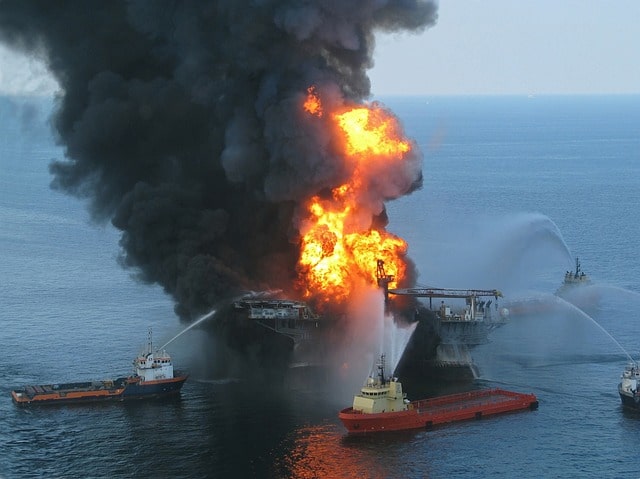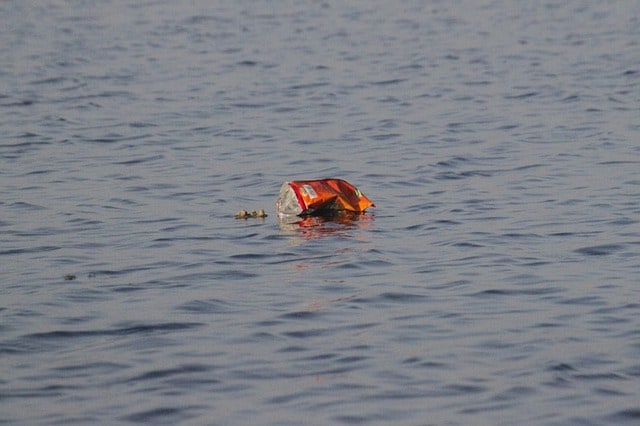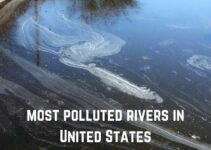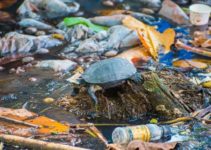Oceans are the largest water bodies on the planet Earth. Over the last few decades, excessive human activities have severely affected marine life on the Earth’s oceans. Ocean pollution, also known as marine pollution, is the spreading of harmful substances such as oil, plastic, industrial and agricultural waste and chemical particles into the ocean.
Since oceans provide the home to a wide variety of marine animals and plants, it is the responsibility of every citizen to play his or her part in making these oceans clean so that marine species can thrive for a longer period of time.
Mining for materials such as copper and gold is a major source of contamination in the ocean. For example, copper is a major source of pollutants in the ocean and can interfere with the life cycles of numerous marine organisms and life.
The greatest threat to our planet is the belief that someone else will save it.
~ Robert Swan
According to National Geographic,
“”Many ocean pollutants are released into the environment far upstream from coastlines. Nitrogen-rich fertilizers applied by farmers inland, for example, end up in local streams, rivers, and groundwater and are eventually deposited in estuaries, bays, and deltas. These excess nutrients can spawn massive blooms of algae that rob the water of oxygen, leaving areas where little or no marine life can exist.“
Various Causes of Ocean Pollution
There are various ways in which pollution enters the ocean. Some of them are:
1. Sewage
Pollution can enter the ocean directly. Sewage or polluting substances flow through sewage, rivers, or drainages directly into the ocean. This is often how minerals and substances from mining camps find their way into the ocean.
The release of other chemical nutrients into the ocean’s ecosystem leads to reductions in oxygen levels, the decay of plant life, and a severe decline in the quality of the seawater itself. As a result, all levels of oceanic life, plants and animals, are highly affected.
2. Toxic Chemicals From Industries
Industrial and agricultural waste is another most common form of wastes that is directly discharged into the oceans, resulting in ocean pollution.
The dumping of toxic liquids in the ocean directly affects marine life as they are considered hazardous, and secondly, they raise the temperature of the ocean, a phenomenon known as thermal pollution, as the temperature of these liquids is quite high. Animals and plants that cannot survive at higher temperatures eventually perish.
3. Land Runoff
Land runoff is another source of pollution in the ocean. This occurs when water infiltrates the soil to its maximum extent, and the excess water from rain, flooding or melting flows over the land and into the ocean.
Often, this water picks up man-made, harmful contaminants that pollute the ocean, including fertilizers, petroleum, pesticides and other forms of soil contaminants. Fertilizers and waste from land animals and humans can be hugely detrimental to the ocean by creating dead zones.
4. Large Scale Oil Spills
Ship pollution is a huge source of ocean pollution, the most devastating effect of which is oil spills. Crude oil lasts for years in the sea and is extremely toxic to marine life, often suffocating marine animals to death once it entraps them. Crude oil is also extremely difficult to clean up, unfortunately, meaning that when it is split, it is usually there to stay.
Besides, many ships lose thousands of crates each year due to storms, emergencies, and accidents. This causes noise pollution (excessive, unexpected noise that interrupts the balance of life, most often caused by modes of transportation), excessive algae, and ballast water.
Often, other species can also invade an ecosystem and do harm to it by interrupting the life cycles of other organisms, causing a clash of nature that has already been damaged by the overflow of pollution.
5. Ocean Mining
Ocean mining in the deep sea is yet another source of ocean pollution. Ocean mining sites drilling for silver, gold, copper, cobalt, and zinc create sulfide deposits up to three and a half thousand meters down into the ocean.
While we yet to have the gathering of scientific evidence to fully explain the harsh environmental impacts of deep-sea mining, we do have a general idea that deep-sea mining causes damage to the lowest levels of the ocean and increases the toxicity of the region. This permanent damage dealt also causes leaking, corrosion and oil spills that only drastically further hinder the ecosystem of the region.
6. Littering
Pollution from the atmosphere is, believe it or not, a huge source of ocean pollution. This occurs when far inland objects are blown by the wind over long distances and end up in the ocean.
These objects can be anything from natural things like dust and sand to man-made objects such as debris and trash. Most debris, especially plastic debris, cannot decompose and remains suspended in the ocean’s current for years.
Animals can become snagged on the plastic or mistake it for food, slowly killing them over a long period of time. Animals who are most often the victims of plastic debris include turtles, dolphins, fish, sharks, crabs, sea birds, and crocodiles.
Also, the temperature of the ocean is highly affected by carbon dioxide and climate changes, which primarily impacts the ecosystems and fish communities that live in the ocean. In particular, the rising levels of Co2 acidify the ocean in the form of acid rain.
Even though the ocean can absorb carbon dioxide that originates from the atmosphere, the carbon dioxide levels are steadily increasing, and the ocean’s absorbing mechanisms, due to the rising of the ocean’s temperatures, are unable to keep up with the pace.
Devastating Effects of Ocean Pollution
1. Effect of Toxic Wastes on Marine Animals
The oil spill is dangerous to marine life in several ways. The oil spilled in the ocean could get on to the gills and feathers of marine animals, which makes it difficult for them to move or fly properly or feed their children. The long term effect on marine life can include cancer, failure in the reproductive system, behavioral changes, and even death.
2. Disruption to the Cycle of Coral Reefs
Oil spill floats on the surface of the water and prevents sunlight from reaching to marine plants and affects the process of photosynthesis. Skin irritation, eye irritation, lung and liver problems can impact marine life over a long period of time.
3. Depletes Oxygen Content in Water
Most of the debris in the ocean does not decompose and remain in the ocean for years. It uses oxygen as it degrades. As a result of this, oxygen levels go down. When oxygen levels go down, the chances of survival of marine animals like whales, turtles, sharks, dolphins, penguins for a long time also goes down.
4. Failure in the Reproductive System of Sea Animals
Industrial and agricultural wastes include various poisonous chemicals that are considered hazardous for marine life. Chemicals from pesticides can accumulate in the fatty tissue of animals, leading to failure in their reproductive system.
5. Effect on Food Chain
Chemicals used in industries and agriculture get washed into the rivers and from there are carried into the oceans. These chemicals do not get dissolved and sink at the bottom of the ocean. Small animals ingest these chemicals and are later eaten by large animals, which then affects the whole food chain.
6. Affects Human Health
Animals from impacted food chain are then eaten by humans, which affects their health as toxins from these contaminated animals get deposited in the tissues of people and can lead to cancer, birth defects or long term health problems.
Solutions to Ocean Pollution
Ocean pollution is a raging problem that needs to be solved as early as possible. With the world’s oceans getting polluted, the marine ecosystems are getting severely disturbed.
Not only that, but the world’s water reserves are also becoming more and more limited. In these situations, it is essential that we find ways of solving ocean pollution. Some of the ways are as follows:
1. Reducing the Use of Plastic Products
Believe it or not, plastic wastes form the largest portion of ocean pollutants. Out of the 260 million tons of plastic produced each year globally, approximately 10% ends up in the oceans.
These plastics then take thousands of years to decompose, during which time it posses a terrible threat to life in the oceans. Thus, reduction in the use of plastic products could help in significantly reducing the rates of ocean pollution.
2. Use Reusable Bottles and Cutlery
Use and throw bottles and cutlery, too, are an immense contributor to ocean pollution. We must not forget that most of the non-reusable bottles and cutlery are made out of either plastic or Styrofoam. Both these materials require a few hundred or thousand years to decompose.
A plastic bottle would require about 450 years to decompose completely. In the meanwhile, it would remain inside the ocean, releasing toxins that would poison the marine life.
3. Recycle Whatever You Can
The 3 R’s are definitely the savior of ocean health. With the increase in population, it is true that the waste produced would also increase significantly. As finding dumping grounds become more and more difficult, a lot of the wastes find their way to the ocean beds. These wastes that are dumped in the ocean remain there for a long time, affecting marine life.
One of the useful ways to reduce waste production is recycling. Before throwing things away, we could check if something is recyclable. Then the products that can be recycled can be taken to the recycling center nearby.
4. Stop Littering the Beach, and Start Cleaning It
The beach is undoubtedly one of the loveliest places to visit and hang out in. As a result of this, there is a lot of littering around as well. The first and foremost thing that really needs to stop is this. Abundant dustbins should be placed on the beaches.
If someone is seen littering, they must be stopped immediately, and certain strict rules and regulations must be followed at all times. Also, if the beach seems untidy, we could pick up the wastes and throw it in the dustbin.
5. Reducing the Use of Chemical Fertilizers
Runoffs, too, pollute the oceans immensely. To prevent this, the use of chemical fertilizers must also be controlled and regulated. It must be remembered that excess use of chemical fertilizers harms not only the soil but also the water bodies nearby and, ultimately, the ocean. These runoffs are so toxic that they can very easily kill marine life.
6. Reducing the Energy Use
As the population increases, our demand for energy increases too. A major chunk of this energy is produced from petroleum. This petroleum is obtained by the drilling of the ocean beds. Any spillage during the procedure could harm marine life. Not only that, but the procedure itself also violates the marine ecological balance. So by controlling our energy use, we could also solve the problem of ocean pollution.







